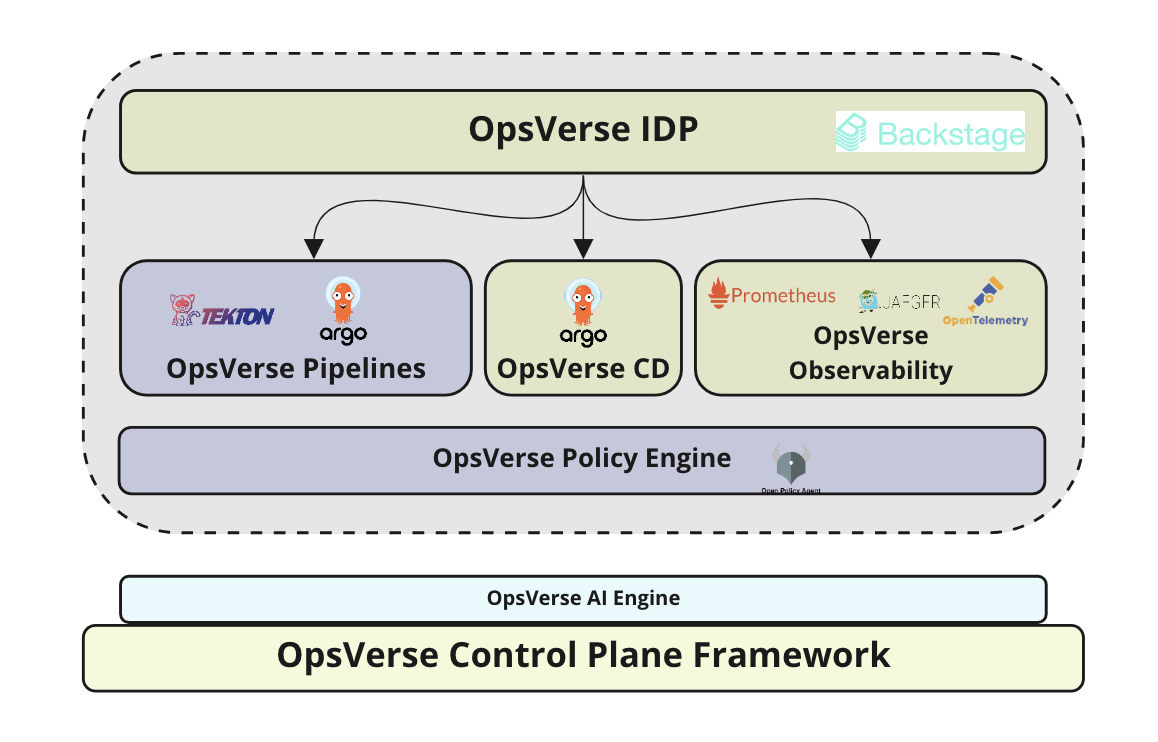OpsVerse this week added an open source Backstage catalogue software for building developer portals to its managed DevOps service.
Originally developed by Spotify, Backstage makes it possible to centralize the management of multiple services that are being built and maintained by multiple developer teams. Backstage is now being advanced under the auspices of the Cloud Native Computing Foundation (CNCF).
OpsVerse CEO Arul Francis said the company is now employing Backstage to create a centralized control plane dubbed OpsVerse ONE through which organizations can more easily centralize the management of a DevOps toolchain. Every applications team can see all the services and related resources they own and then via a single click launch a project, he noted.
The managed OpsVerse platform is based on curated editions of open source software such as Argo continuous delivery (CD) and Prometheus monitoring software that OpsVerse enables organizations to access as a set of software-as-a-service (SaaS) applications. Those applications can then either be deployed in cloud platforms made available by Amazon Web Services (AWS), Microsoft or Google or in an on-premises IT environment.

The addition of OpsVerse ONE will also make it simpler to extend the OpsVerse toolchain via more than 80 plugins that are currently available for Backstage catalogue software, noted Francis.
It’s not clear what degree organizations are embracing managed DevOps platforms but at the very least smaller organizations should find it simpler to embrace best DevOps practices by relying on a managed service. There are also plenty of larger organizations that may determine that continuing to manage DevOps toolchains has become problematic after years of integrating various tools and platforms in ways that now are both challenging to maintain and secure. OpsVerse claims to have in the last six months already tripled the number of customers it supports.
As application development becomes more complex to manage in the age of microservices, many organizations are at a crossroads. They need to decide to what degree it makes sense to continue to devote resources to managing DevOps platforms versus consuming them as a cloud service. Many of the resources that are now allocated to managing DevOps platforms could theoretically be shifted toward building and deploying more applications. In some cases, organizations may decide to continue to rely on legacy DevOps platforms to maintain existing applications while employing a cloud service to build modern cloud-native applications that have many more dependencies than monolithic applications.
Regardless of the degree to which organizations decide to rely on managed services, platforms such as Backstage as it continues to evolve will make it simpler to extend open source toolchains. Spotify developed Backstage to bring some order to its own internal application development and deployment processes before deciding to contribute Backstage to the open source community. While Backstage is still an incubation-level project within the CNCF, it’s already being used across multiple DevOps production environments to make it easier to integrate additional tools without having to sacrifice their ability to centrally manage a DevOps environment.





